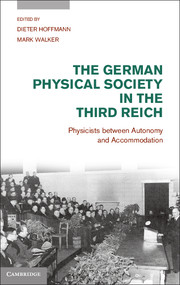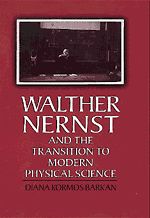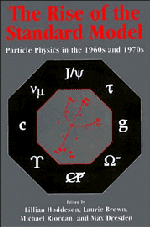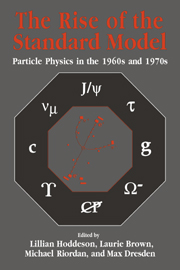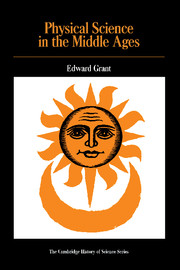The German Physical Society in the Third Reich
This is a history of one of the oldest and most important scientific societies, the German Physical Society, during the Nazi regime and immediate postwar period. When Hitler was appointed chancellor of Germany in 1933, the Physical Society included prominent Jewish scientists as members, including Fritz Haber and Albert Einstein. As Jewish scientists lost their jobs and emigrated, the Society gradually lost members. In 1938, under pressure from the Nazi Ministry of Science, Education, and Culture, the Society forced out the last of its Jewish colleagues. This action was just the most prominent example of the tension between accommodation and autonomy that characterized the challenges facing physicists in the society. They strove to retain as much autonomy as possible, but tried to achieve this by accommodating themselves to Nazi policies, which culminated in the campaign by the Society's president to place physics in the service of the war effort.
- This is the first history of the German Physical Society in English
- The German Physical Society is one of the largest and most important scientific societies
- The history of the German Physical Society during the Nazi period is an important addition to the histories of the Holocaust and the development of modern physics
Reviews & endorsements
“This fine volume explores in detail for the first time in English the role of the German Physical Society from the Nazi takeover of power in 1933 into the early postwar years, and includes comparisons with chemical and mathematical societies. The book is an important contribution to the ongoing discussion of the possibility as well as the costs of the relative autonomy of science in dictatorships, and also to our understanding of the institutional and cultural reconstruction of the sciences in West Germany after 1945.” – Mitchell G. Ash, Professor of Modern History, University of Vienna, Austria
"Hoffmann and Walker deserve our thanks and congratulations." -Physics in Perspective
"The scholarship is thorough and thoughtful...The authors and translator are commended for treating the topic in a way as absorbing for novice readers as for experts in the subject. Highly recommended." -Choice
Product details
December 2011Hardback
9781107006843
482 pages
241 × 164 × 37 mm
0.81kg
27 b/w illus.
Available
Table of Contents
- Foreword Eberhard Umbach
- 1. The German Physical Society under National Socialism in context Mark Walker
- 2. Boundaries and authority in the physics community in the Third Reich Richard H. Beyler
- 3. Marginalization and expulsion of physicists under National Socialism: what was the German Physical Society's role? Stefan L. Wolff
- 4. The German Physical Society and Aryan physics Michael Eckert
- 5. The Ramsauer era and self-mobilization of the German Physical Society Dieter Hoffmann
- 6. The Planck medal Richard H. Beyler, Michael Eckert and Dieter Hoffmann
- 7. The German Physical Society and research Gerhard Simonsohn
- 8. The German Mathematicians Association during the Third Reich: professional policy within the web of National Socialist ideology Volker Remmert
- 9. 'To the Duce, the Tenno, and our Führer: a threefold Seig Heil': The German Chemical Society and the Association of German Chemists during the Nazi era Ute Deichmann
- 10. Distrust, bitterness, and sentimentality: on the mentality of German physicists in the immediate postwar period Klaus Hentschel
- 11. Cleanliness among our circle of colleagues: the German Physical Society's policy toward its past Gerhard Rammer.

